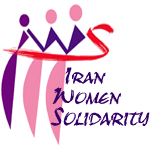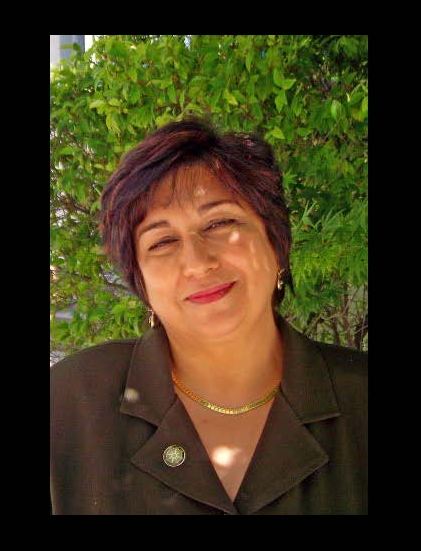The idea of an International Women’s Day ( IWD) was a seed planted at the turn of the century and is rooted in the global movement for gender equality. It is an occasion marked by women’s groups around the world to reaffirm their plight for equality and celebrate their achievements.
When women on all continents, often divided by national boundaries and by ethnic, linguistic, cultural, economic, religious and political differences, come together to celebrate their Day, they can look back to a tradition that represents almost a century of struggle for equality, justice, peace and development.
International Women’s Day is the narrative of ordinary women as makers of history; it is deep rooted in the struggle of women to gain the dignity and respect as an equal citizen and have an opportunity to participate and contribute in their respective society . In ancient Greece , Lysistrata initiated a sexual strike against men in order to end war; during the French Revolution, Parisian women calling for “liberty, equality, fraternity” marched on Versailles to demand women’s suffrage. Today, women as strong as ever in the history, are more aware of their rights, their human rights and demand it from a position of power. Ordinary women from Iraq to Afghanistan , from US to Iran , from Guatemala to Palestine are defining and redefining gender on daily basis. Their collective desire of women manifested in the global women’s movement has moved issues such as “ Violence Against Women” and “ Women’s Human Rights “ from margin to the center of global agenda.
When UN finally adopted a resolution on the observance of Women’s Day, many countries questioned why dedicate a day exclusively to the celebration of the world’s women? In response to this question, two reasons were cited: to recognize the fact that securing peace and social progress and the full enjoyment of human rights and fundamental freedoms require the active participation, equality and development of women; and to acknowledge the contribution of women to the strengthening of international peace and security. For the women of the world, the Day’s symbolism has a wider meaning: It is an occasion to review how far they have come in their struggle for equality, peace and development. It is also an opportunity to unite, network and mobilize for meaningful change.
In the 52nd session of the commission which started on Feb 25th and ended on March 7th, the Commission on the Status of Women ( CSW ) considered the Secretary-General’s report on ending violence against women specifically, female genital mutilation, forced marriage of the girl child, the situation of and assistance to Palestinian women as well as Gender Equality Architecture Reform (GEAR) which many civil society organizations argued that change is considered necessary as the current architecture is not meeting the needs of UN. The launch of the Secretary-General’s campaign to end violence against women reflected the fact that women are still facing various forms of violence and in that pursuit of ending violence against women, the roles and responsibilities of men and governments are highlighted.
Despite all the resolutions of UN, struggle of women’s movement and the support of civil societies, gender-based violence continues throughout the world. Women experience violence at home, in community and society and at global level. While some of the actors who perpetuate violence against women are the authoritarian governments such as Iran , others are denied their basic human rights to dignity and rights because of occupations and aggression. The forces of religious extremism in all religions and militarization are major barriers to realize the respect for women’s human rights. Violence against women is the cause and consequences of gender inequality and a manifestation of power structure in patriarchy.
So, while the theme of the 2008 session of Commission on the Status of Women was “ Investing in Women and Girls”, in many part of the world, we are witnessing “ divesting “ rather than “ investing”.
– In Africa , limited education and employment opportunities
for women reduce annual per capita growth by 0.8%. Had
this growth taken place, Africa ’s economies would have doubled
over the past 30 years.
– The Asia-Pacific region is losing $42-$47 billion annually as a
result of restrictions on women’s access to employment opportunities,
and another $16-$30 billion per year because of
gender gaps in education, according to the Economic and Social
Commission for Asia and the Pacific.
– Countries that fail to eliminate gender disparities in primary
and secondary education by 2015 — one of the key targets
of the Millennium Development Goals — could lose between
0.1 and 0.3 percentage points of per capita growth rates.
In countries such as Iraq and Afghanistan and many other war and conflict zones, women and children are bearing the brunt of many forms of violence against women.
In Iraq , women are experiencing more violence because of occupation. There are 3.4 million Internally displaced refugees in Iraq majority women and girls and the number of Iraqi refugees living abroad has been estimated up to 2.4 million. Young women and girls are experiencing harsh realities of living in poverty and unsafe, un-welcomed environment in refugee camps.
In Kandahar, one of the most violent provinces in Afghanistan , on March 8th women are gathering for peace because they are tired of watching their family and friends killed in senseless acts of violence. Women in Kabul and every other province of Afghanistan will express their solidarity with the Kandahar women by reading a message of peace at their International Women’s Day gatherings on March 8th.
The Afghan women have taken their cue from two ordinary women in Ireland who, in the 1970’s, grew angry because Irish were killing Irish. These women went door to door and convinced women to march for peace. They later won the Nobel Peace Prize.
“Today we drove by the site of the third suicide bomber in three days,” says Rangina Hamidi, one of the organizers of the Kandahar gathering. “We are ready to follow in the footsteps of our Irish sisters. For the past seven years Afghans have celebrated March 8th with cheap gifts given to women to honor them. This year, the women in Kandahar loudly say the best gift for us is peace in our country.”
In Iran , while women experiencing serious repression, the news about Iranian feminist activist Parvin Ardalan receiving Olaf Palme prize was indeed a very good news that many women globally cherished. More than 250 women organizations attending the UN Commission on the Status of Women in late February and beginning of March, signed the declaration in support of the struggle of Iranian women for democracy, human rights and peace.
<img101|center>
Iranian women mobilized and organized in more than 350 NGOs and different campaigns such as The Campaign for collecting one million signatures to change the discriminatory laws against women, the Campaign to Stop Stoning for Ever, the Campaign to Say No to Draft of Family Law, the campaign to Open Stadiums to Women Audience, the campaign of Young Lawyers for Gender Equality in Family Law, The campaign to Defend Women’s Rights Defenders, The campaign for Right to Pass Nationality, Iranian Mother, Iranian Child are the backbone of civil society struggle for democracy and human rights.
<img102|center>
Parvin Ardalan, one of the many brave Iranian feminist activists, in her speech delivered via video during the ceremony where she was presented with the Olaf Palme Award ( Parvin Ardalan was due to travel to Stockholm on March 3, but was banned from travel at the last minute.
Her sister received the award in her place.) said :
“ I believe that bestowing this honor upon me, is not only an act of recognition for the individual struggles of women’s rights activists in Iran, but an honor acknowledging the collective actions of the women’s movement as well as other social movements in Iran. The granting of this award demonstrates that the efforts of those who work to defend equal rights and freedoms in Iran — despite the many ups and downs their struggles entail, and the patriarchal obstacles along their path — has indeed been effective. And yes, today our demand for justice has resonated with the international community. I too am aware that by receiving this award, I will be subject to greater pressures and accusations at home.
I dedicate this award to all the women of my country, to my mother, to the mothers of prisoners of conscience, and to all the other mothers of my land, who while enduring, have taught us how to resist discrimination, so that we too can pass on these teachings to our children and to future generations.”


